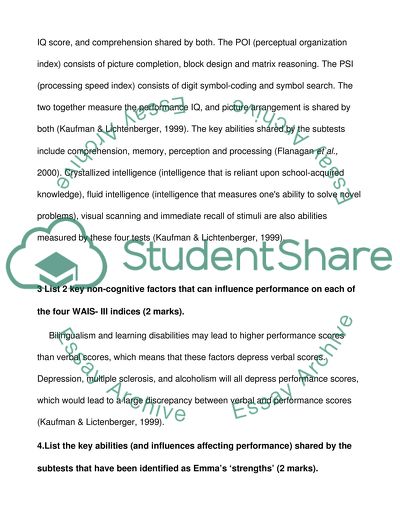Cite this document
(“WAIS-III Assessment. Psychological tests Assignment”, n.d.)
Retrieved from https://studentshare.org/psychology/1397632-wais-iii-assessment-psychological-tests
Retrieved from https://studentshare.org/psychology/1397632-wais-iii-assessment-psychological-tests
(WAIS-III Assessment. Psychological Tests Assignment)
https://studentshare.org/psychology/1397632-wais-iii-assessment-psychological-tests.
https://studentshare.org/psychology/1397632-wais-iii-assessment-psychological-tests.
“WAIS-III Assessment. Psychological Tests Assignment”, n.d. https://studentshare.org/psychology/1397632-wais-iii-assessment-psychological-tests.


